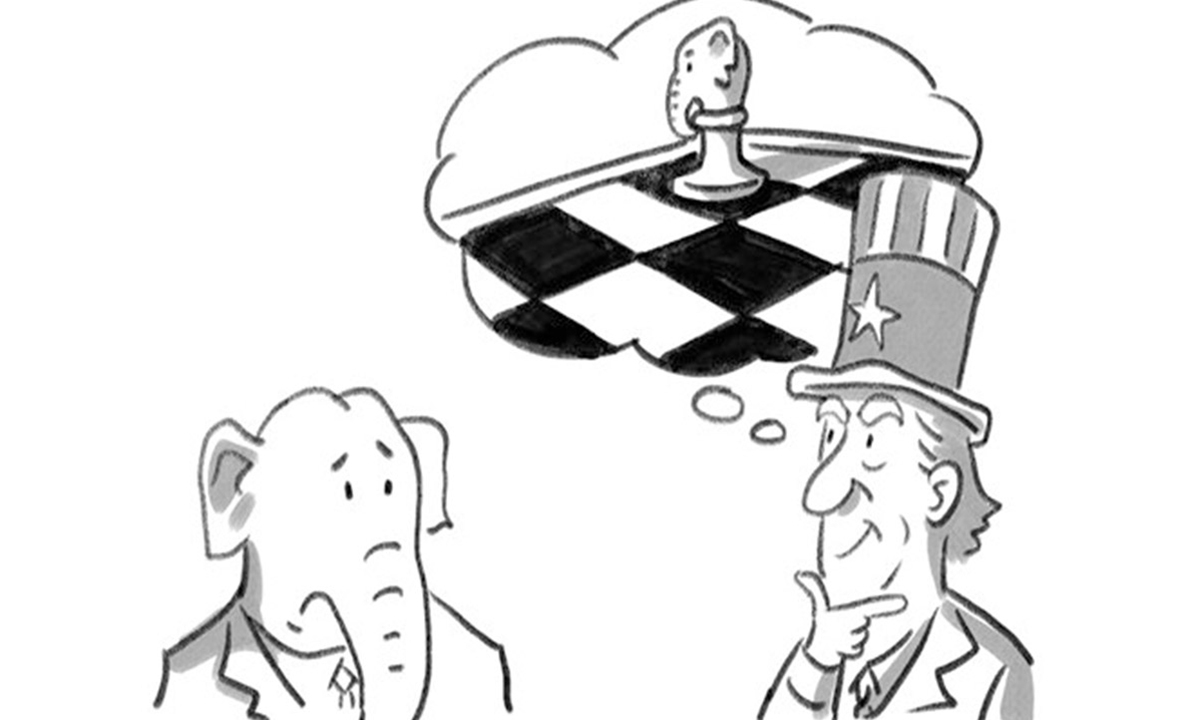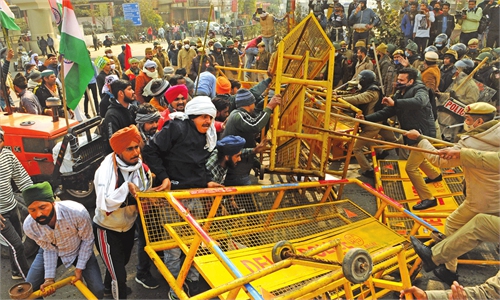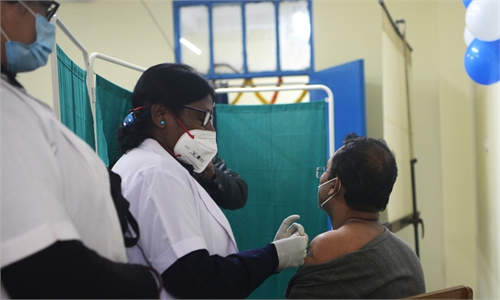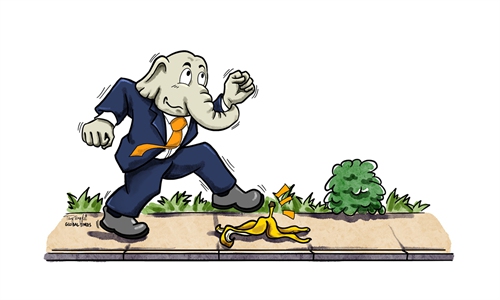
US-India Illustration: Liu Rui/GT
Will the US continue to value India as it did? The Indian government would like to believe so. Particularly after newly appointed US Secretary of Defense Lloyd Austin put his Indian counterpart among the first names on his list of phone calls to make.
Since New Delhi has put huge efforts to cozy up to the US Indo-Pacific Strategy, it doesn't want to see them go in vain. With Joe Biden as president, many observers believe that US diplomatic policies may be adjusted. This has worried the Indian government.
In this context, the Indian government interprets Austin's Wednesday call as a good omen that Washington will continue to keep New Delhi close by its side.
But it remains to be seen what will happen to US-Indian ties in general.
During the last Democratic administration, US' preference for India reached new heights. In 2016, the US designated India as a "Major Defense Partner." At that time, India still adhered to maintaining a normal track of friendly cooperation with China, which made it take a more cautious attitude toward the Obama administration's moves to woo it.
In sum, India's US policy is largely determined by its China policy. Therefore, during Trump's tenure, especially since 2020, New Delhi changed sharply its attitude toward Washington.
Rarely brought up during the past four years, the US-India Major Defense Partnership has been mentioned twice by Austin in just roughly a week - once during his confirmation hearing on January 19, and another with his phone call to Indian Minister of Defense Rajnath Singh.
Why was the term suddenly repeated in such a short time? One reason could be that Washington believes that New Delhi has adjusted its former non-alignment policy, something India used to be proud of.
The non-alignment policy was once the cornerstone and core of India's diplomacy. But it was basically abandoned after Modi became prime minister in 2014. During the Cold War, India wanted to take a neutral path between the US and the former Soviet Union. Clearly, India is tossing its non-alignment policy aside, no longer taking it seriously at all.
Though India hasn't publicly announced that it has abandoned the non-alignment policy, as a spirit and principle, this former diplomatic stance now only exists in name.
While the new US administration is reaching out to Modi, this doesn't mean New Delhi will align with Washington. After all, India has to weigh the obligations it has to fulfill in a military alliance. For example, if the US sends troops to countries such as Afghanistan, India will have to do so, just as some US allies in NATO are committed to. This is not what India wants. So for now, New Delhi will be reluctant to join any formal military accord that requires it to send in combat forces to engage hostiles for US-led missions.
In the past few years, US-led Western countries lavished praises on India, making the South Asian country overestimate its international role. This has only accelerated during the pandemic.
Of course, India's status has not risen in the international community over the past several years. Few take New Delhi's remarks seriously. From this perspective, today's India cannot even be compared with what it was under the leadership of Jawaharlal Nehru (1947-64). Back then, India was quite influential among developing countries. Such appeal has long vanished, even though India's economic and relative security strength has increased.
For example, with elevated annual economic growth rates, India retained the position as the world's second-largest arms importer after Saudi Arabia between 2015 and 2019. India thus gained the attention of large weapon producers such as Russia, the US and France. But this didn't help India increase its international status. It backfired.
Today, India is facing a variety of serious domestic problems with the raging COVID-19 virus and collapsing economy. Since last summer, the Modi administration has shifted domestic attention away from its mismanagement by taking advantage of the chaotic pandemic and border disputes with China to incite nationalist sentiments. But as these internal problems worsen, it is questionable how much longer such tricks will still work on their people.
Modi's reluctance to properly address the root causes of its domestic problems while flexing muscles at the China border will only increase India's instability. Seeking assistance from the US won't help either. These cannot pull India out of quagmire.
The article was compiled based on an interview with Zhao Gancheng, a research fellow at the Shanghai Institute for International Studies. opinion@globaltimes.com.cn



